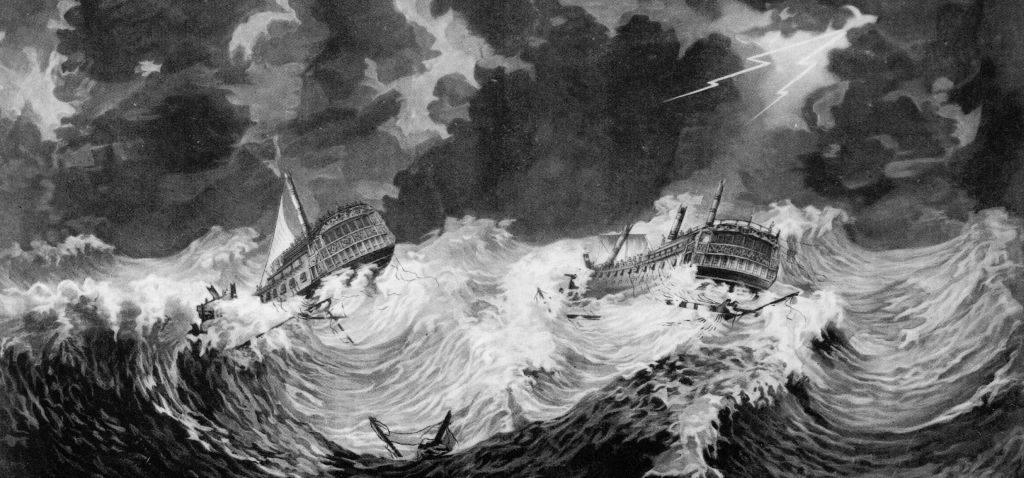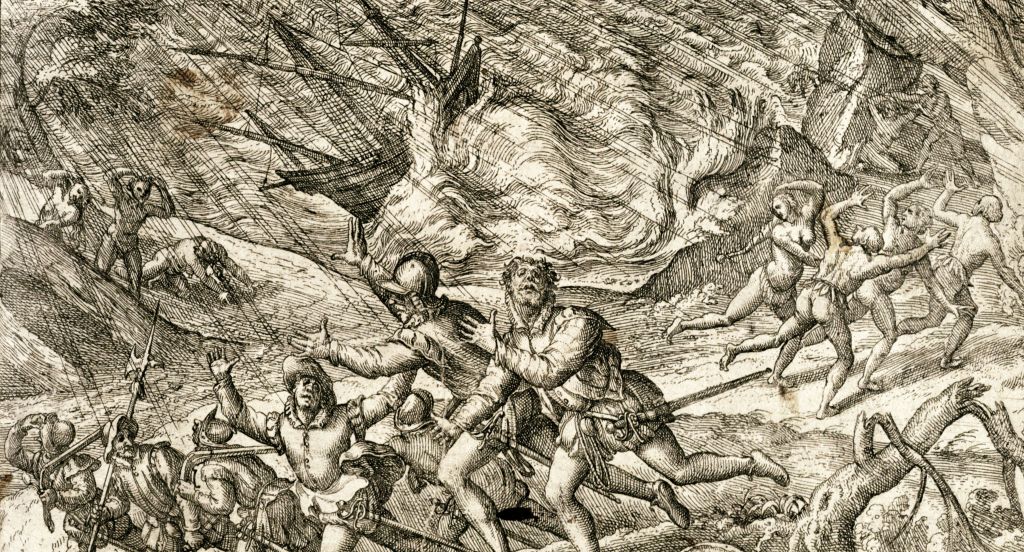Authors:
Historic Era: Era 3: Revolution and the New Nation (1754-1820s)
Historic Theme:
Subject:
September 2020 | Volume 65, Issue 5


Authors:
Historic Era: Era 3: Revolution and the New Nation (1754-1820s)
Historic Theme:
Subject:
September 2020 | Volume 65, Issue 5

Editor's Note: Weather affects so much in our own lives, yet few historians consider its impact on major events in the past. This month, Eric Jay Dolin, a writer with degrees in environmental science and environmental policy from Brown, Yale, and MIT, has published A Furious Sky: The Five-Hundred-Year History of America's Hurricanes (Liveright), a fascinating look at how these monstrous storms have affected history. We asked him to tell us about the worst hurricane season, and how it changed American history. Mr Dolin has written 13 previous books of history, including Leviathan and a favorite of ours, Fur, Fortune, and Empire, which is about how the fur trade affected the European settlement of North America and the development of the United States.
Hurricanes are — and have always been — an inevitable and painful part of the American experience. Just as we can count on the sun rising and setting each day, so, too, can we expect hurricanes to periodically visit our shores, rampaging like brawlers, bobbing and weaving and slugging anyone or anything that stands in their way.
Over the centuries, hurricanes have left an indelible mark on American history. And none was greater than the catastrophic hurricane season of 1780 — the deadliest on record according to the National Hurricane Center — which had a profound effect on both the French and British militaries and their attitudes towards fighting in the Americas. Numerous French transports and fifteen British warships were lost, many with their entire crews perishing, in the months before the pivotal naval battles that led to the capture of Gen. Cornwallis’s army at Yorktown.
See the results of American Heritage's new research in
“British Ships Lost in 1780 Hurricanes” in this issue.
The word “hurricane” has its origins in the original languages of the Caribbean basin, where native peoples attributed the region’s wild weather to the work of deities. The Mayans named their god of storms or destruction hunraken, and the Quiche and the Arawak called theirs hurakan, while the Taino named theirs juracan. Over the centuries of European colonization, these names ultimately morphed into huracan, ouragan, orkaan, orkanen, and hurricane, in Spanish, French, Dutch, Danish, and English, respectively.
Columbus survived a hurricane during his last voyage to the New World in 1502, one which sunk 24 Spanish treasure ships returning to Spain with the loss of nearly everyone on board. In 1559 Spain launched the first European effort to settle North America with a fleet of eleven